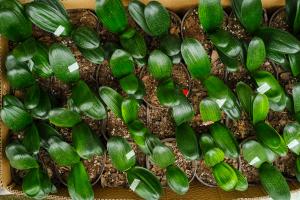What to Tie Up Tomato Plants With
Tomatoes are a popular type of fruit that can be grown in almost any part of the world, provided they are planted in healthy soil and receive adequate care. As tomato plants begin to grow, they require support to remain upright and healthy. One of the most common ways to provide support to tomato plants is through tying them up. In this article, we will discuss what to tie up tomato plants with.
Cotton Twine
One of the most eco-friendly materials to use for tying tomato plants up is cotton twine. Cotton is a biodegradable material, which means that it will not harm the environment. Additionally, cotton twine is soft and gentle, which means that it will not damage the delicate stems of tomato plants, allowing them to grow healthily. When using cotton twine, make sure to tie it in a loose knot to prevent the twine from digging into the plant's stem as it grows.
Bamboo Stakes
Bamboo stakes are another popular material to use when tying up tomato plants. Bamboo is a sustainable material and can be reused for years, making it an environmentally friendly choice. Bamboo stakes are also sturdy and durable, which means that they can support the weight of tomato plants as they grow. However, make sure to choose stakes that are thick enough to provide adequate support and avoid those that are too thin, as they may break under the weight of the plant.
Plastic Twine
While plastic twine is generally not recommended due to its non-biodegradability and potential harm to the environment, using it in moderation could be a practical choice for tying up tomato plants. Plastic twine is durable, affordable, and easy to tie, making it a popular choice among gardeners. However, be sure to dispose of plastic twine responsibly to avoid environmental harm.
Rubber Bands
If using rubber bands, make sure to choose ones that are soft and gentle, as hard rubber bands may cause injury to the tomato plant. Rubber bands can be an inexpensive and easy way to tie up tomato plants since they come in many different sizes and can be found in most households.
In Conclusion
There are many different materials that can be used to tie up tomato plants, with some being more environmentally friendly than others. Cotton twine, bamboo stakes, and soft rubber bands are all good choices and should be used in moderation to ensure the plants grow well. Remember, when tying tomato plants up, make sure not to tie them too tightly, as it can damage the plant and impair its growth. With the right materials and a little patience, your tomato plants will thrive and produce a bountiful harvest.

 how many times do yo...
how many times do yo... how many planted tre...
how many planted tre... how many pine trees ...
how many pine trees ... how many pecan trees...
how many pecan trees... how many plants comp...
how many plants comp... how many plants can ...
how many plants can ... how many plants and ...
how many plants and ... how many pepper plan...
how many pepper plan...































